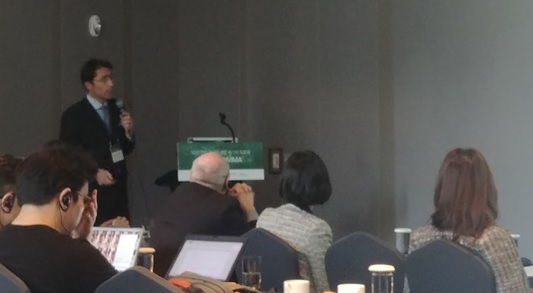Eisai Korea’s Lenvima (lenvatinib), recently approved as a first-line treatment for hepatocellular carcinoma (HCC), might also be effective in fighting liver cancer, experts said. Eisai rolled out Lenvima to take on Bayer’s Nexavar (sorafenib).
Eisai won the nod for Lenvima from the Ministry of Food and Drug Safety in August, after proving the drug’s non-inferiority to sorafenib on overall survival (OS), progression-free survival (PFS), and objective response rate (ORR) in clinical trials.

However, if Lenvima treatment fails, there is no medicine to treat HCC as second-line therapy. Lenvima also has more serious adverse reactions including hypertension than sorafenib.
Experts at a news conference by Eisai Korea, however, raised hope for Lenvima as a useful treatment option for liver cancer. The news conference was to celebrate the company’s winning license for Lenvima.
As physicians previously had Nexavar as the only first-line treatment available, the option for Lenvima should not be restricted due to concerns for the lack of second-line treatment, experts said.
As Lenvima has a longer PFS than sorafenib (Lenvima with 7.3 months in PFS median, sorafenib with 3.6 months), it is necessary to compare the adverse events taking into account the duration of the treatment, some said.
Professor Fabio Piscaglia of University of Bologna’s Medical and Surgical Sciences Department, who led the REFLECT trial on Lenvima, said Lenvima’s more extended treatment with a longer PFS should be considered when evaluating adverse events.
“Although Lenvima appears to have a high rate of adverse events (hypertension: 42 percent in Lenvima and 30 percent in sorafenib), it means that fewer patients stopped taking the prescription,” he said.
If severe adverse events occur in reality, the patient will resume the treatment after recovery of symptoms, Piscaglia assumed. “Therefore, there will be fewer adverse reactions in patients in reality than in clinical trials,” he said.
Kim Ji-hoon, a professor of the gastrointestinal department at Korea University Guro Hospital, also said it was meaningful that Lenvima had a longer PFS while the OS was similar, although the lack of second-line treatment is an “academically significant” problem.
“Limiting the prescription of Lenvima in consideration of the lack of a second-line therapy will not be a good choice for patients,” Kim said.
In the case of sorafenib’s treatment failure, regorafenib proved efficacy as a second-line drug. The academic community expects that cabozantinib will be commercially available as a second-line medicine after successful trials.

